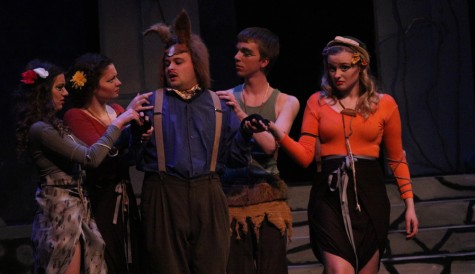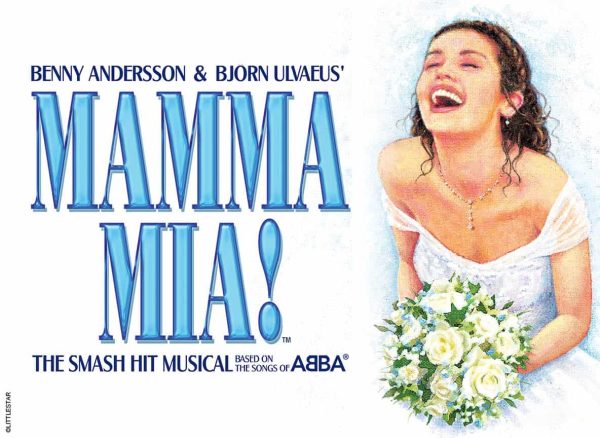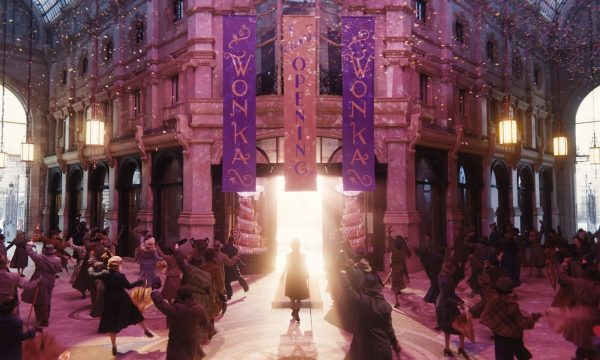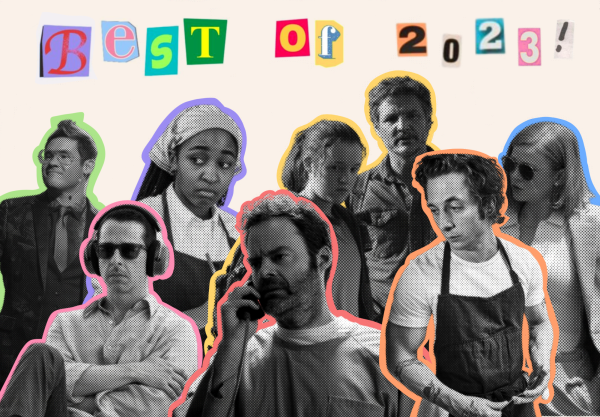A Midsummer Night’s Review
Eva’s Evals will continue next Tuesday March 8.
 Be honest: have you ever tried to read Shakespeare, only to start nodding off?
Be honest: have you ever tried to read Shakespeare, only to start nodding off?
But soft, what light through yonder window yawns.
At one time, I felt the same way. However, over the last couple of years, I’ve learned that Shakespeare is truly amazing when his words are brought to life — whether through imagination, Omaha’s “Shakespeare on the Green” or at Westside. If you saw last week’s performance of “A Midsummer Night’s Dream,” I think you’d see what I mean!
In contemporary adaptations of Shakespeare, it’s common to put a twist on the material. This production of “Midsummer” was characterized by 1920s fashion, including Gatsybian menswear and Hippolyta (Anastasia Petrosyan) in a glamorous flapper dress. The costumes and set design definitely enhanced the show. A garland of flowers adorned fairy queen Titania’s (Audrey McMullen) bed and a platform with Greek columns stood upstage. The vines even spread out into the concessions area, giving a whimsical feeling to intermission.
All of the performances were stellar, but I’d like to commend a few of them specifically. The mischievous Robin Goodfellow’s (Zach Bowen) physical choices were perfect for a puck: spry, wild and impish. The ensemble fairies wowed me with their costumes and mesmerizing choreography, and the troupe of workmen got laughs and applause from the audience. Nick Bottom (Jacob Thomas) was an extremely convincing donkey and did some hilarious overacting during the play-within-a-play. Finally, Flute (Grace Johanningsmeier) interpreted the workmen’s play in a unique way that gave the show a truly heartwarming ending.
Though some of Shakespeare’s wordplay may not be obvious to modern viewers, the performers hit their comedic notes. Additionally, the acting and directing choices kept the play interesting at every step — for example, in one scene where Helena and Hermia fight, the competing Lysander and Demetrius slowly start a frat-boy shoving contest in the background, which slowly evolves into a full bro-down.
All told, I can’t identify a single weak element. My only negative note would be that the music (while an otherwise fantastic accent to the show) cut out abruptly a few times. Other than that, all the tech aspects went smoothly, so major props to that sector of the theater crew.
The production stuck pretty faithfully to the source, with few major alterations from what I could tell. Keep in mind, there are a couple events in”Midsummer” that modern audiences may think are shady — for example, the morality of using a love potion to coerce someone into marriage and the fact that Titania gets a bum deal no matter how you look at it. But then again, them’s the breaks when dealing with fairy magic and as stated by Puck in the disclaimer: “If we shadows have offended, / Think but this and all is mended— / That you have but slumbered here / While these visions did appear.”
I’m convinced: going to see Shakespeare productions at Westside is awesome. Even if you don’t think you’re a “Shakespeare type” — in fact, maybe especially. Westside’s thespians did a superior job imparting all the humor and drama in the script onto their audience, after doubtlessly poring for hours over text and the way each line should be interpreted — they’re the ones doing heavy lifting, indeed! And if you’re worried about plot, there are always Video Sparknotes (or the playbill.) So if you missed “Midsummer”, I recommend you seize the next chance to see the Bard in our auditorium, especially since the district is (unfortunately) cutting it from the curriculum. I, for one, had a fabulous time. Once you go 16th-century, you never go back.
Your donation will support the student journalists of Omaha Westside High School. Your contribution will allow us to purchase equipment and cover our annual website hosting costs.











